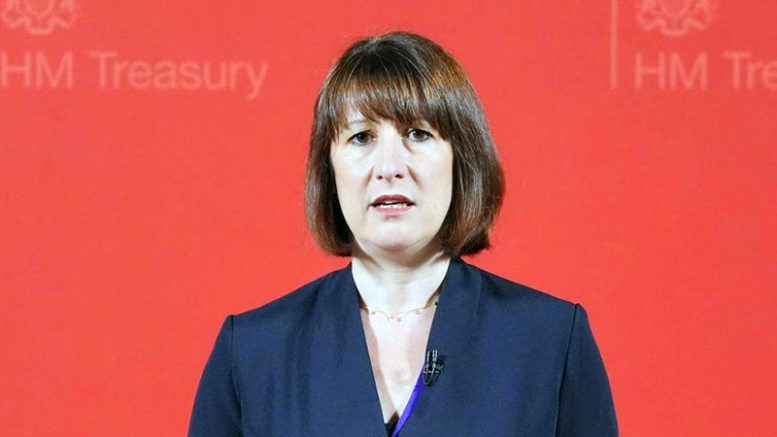The Spring Statement has sparked renewed debate over the prospect of wealth taxes in the UK, as Labour MPs proposed radical alternatives to public spending cuts. But leading property experts and landlord advocates have issued strong warnings about the unintended consequences of such measures - particularly on the private rented sector and long-term housing supply.
With mounting pressure on the Government to plug fiscal gaps, landlords are pushing back, calling for smarter housing policies and reforms to ensure that private investment continues to underpin Britain’s fragile housing market.
Calls for wealth taxes raise concerns for property investors
During the Spring Statement debate, Andy McDonald, Labour MP for Middlesbrough East and Thornaby, called for either capital gains tax (CGT) to be aligned with income tax or the introduction of a 2% wealth tax on assets over £10 million - a suggestion backed by fellow Labour MP Nadia Whittome.
They positioned these tax hikes as alternatives to cuts to disability benefits. Yet critics argue that wealth is already taxed through CGT, inheritance tax, dividend tax, and pension restrictions - and adding more layers would deter long-term investment.
Sarah Coles, Head of Personal Finance at Hargreaves Lansdown, noted: “In the Spring Statement, no news on wealth taxes can only be good news for savers and investors. However, they can’t afford to get too comfortable… with public finances still so tight, the government hasn’t ruled out more tax rises in the autumn Budget.”
Coles highlighted the challenges of implementing a blanket wealth tax, including complex asset valuations, potential avoidance, and the threat of capital flight. “It could be particularly painful for those who are asset rich and cash poor,” she warned. A retrospective mansion tax, for instance, “could put an enormous dent in their estate” if levied alongside inheritance tax.
Landlords welcome support but warn policy gaps remain
While the Spring Statement delivered £2 billion in funding for the Affordable Homes Programme and £600 million for construction training, industry leaders say far more is needed to support landlords and resolve the housing crisis.
Michael Cook, CEO of Leaders Romans Group, welcomed the investment but said it’s “a missed opportunity” not to include wider homeownership options. “At very little cost to the taxpayer, the government could do much more to champion shared ownership as an affordable and practical way of addressing this country’s housing crisis.”
Cook also raised concerns about the Renters’ Rights Bill, warning that unless substantially amended, it could increase homelessness and put added financial pressure on local authorities. “The courts process, the increase in allowable arrears, and the abolition of rent in advance must all be reconsidered,” he said.
Meanwhile, William Reeve, CEO of Goodlord, pulled no punches: “The PRS is creaking under intense pressure… Anti-market reforms are inhibiting the market from finding solutions that would reduce the amount of money the Government needs to pour into the sector.”
Reeve criticised policies in the Renters’ Rights Bill - such as banning ‘over-bidding’ and abolishing fixed-term student tenancies - as “anti-market” and warned they would “make things harder for tenants, not easier.”
He added, “We should remove artificial barriers between the social and private sectors… and make investing in property a more attractive option.”
Skills investment welcomed, but landlords say more action needed
The Government’s pledge to fund construction skills training was met with cautious optimism. Justin Young, CEO of the Royal Institution of Chartered Surveyors (RICS), described it as “a decisive investment in the UK’s built environment” and noted that combining this with a new GCSE in Built Environment could help attract younger talent to the sector.
But Cook argued that boosting vocational training and promoting non-university pathways could have been achieved “at no extra cost to the Exchequer”, simply by giving greater respect to trades and property professions.
Stamp Duty also remains a sore point. Cook called for a “comprehensive reassessment”, describing it as “a very damaging tax – one that can cost the Treasury, rather than benefitting it, by discouraging people to move up the property ladder.”
Meanwhile, landlords and developers are watching closely for potential business rates reform later this year, which RICS says could help reduce financial pressure on property firms.
What does it all mean for landlords?
For now, landlords are breathing a cautious sigh of relief that wealth taxes were not introduced in the Spring Statement - but the warning lights are still flashing. With pressure mounting ahead of the Autumn Budget, the idea of taxing property assets or targeting higher-value holdings remains very much on the political table.
The real question is: How can the Government balance the books without killing off private investment in housing?
As the Renters’ Rights Bill inches closer to reality, and more radical tax proposals gain traction on the left, landlords face a crossroads. Strategic policy reform - not populist tax grabs - is what’s needed to support housing growth and secure long-term supply.
If the Government wants the private sector to keep delivering, it must resist short-term solutions and start treating landlords as essential partners in solving the UK’s housing puzzle.





